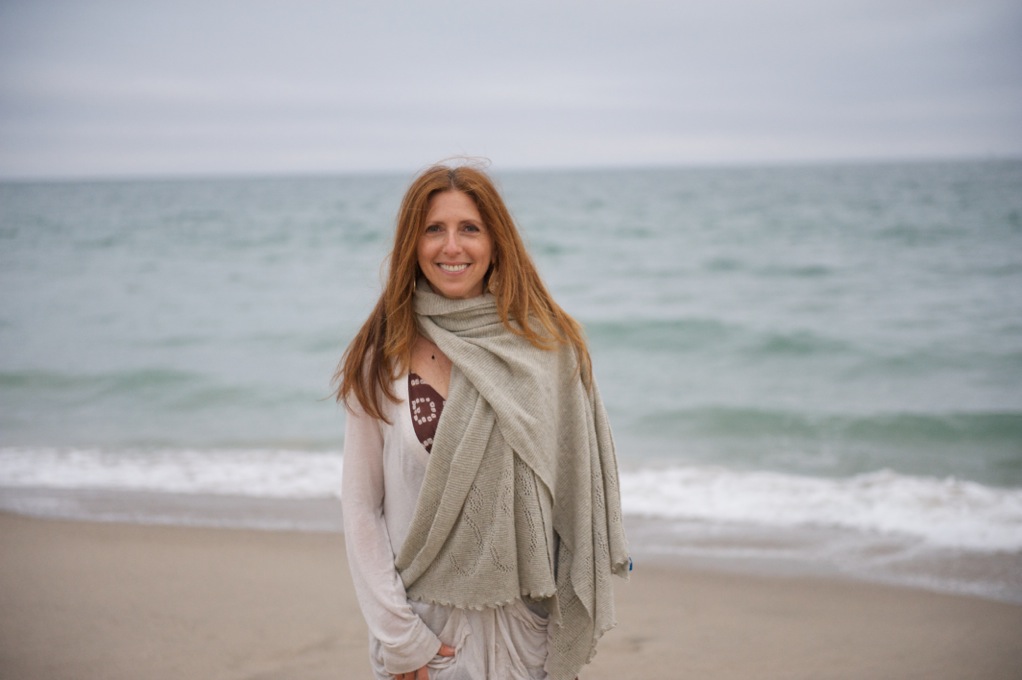
It was becoming clearer to me that both my parents opted for unique systems of denial. Some experts say that Holocaust survivors who didn’t speak of their experiences were protecting others, their kids, from the evil they’ve experienced or seen. But I believe there is another reason – shame. The notion of, ‘I didn’t suffer enough’ or ‘I didn’t suffer like them,’ was a powerful deterrent for my mother. She buried her tales until that afternoon in Israel. And in lieu of being the vessel for my parent’s stories, and their lived experiences, I had to find ways to fill in the gaps. To find stories that would transmit the essential question: Where have I come from? This gap allowed my imagination to find fertile ground. I, too, all my life imagined having survived Auschwitz.
When years later, I visited Auschwitz-Birkenau, it was a rainy day, and by the time I arrived at Birkenau, where most of the prisoner’s barracks, gas chambers, and crematoriums were – the sun had come out. A beautiful rainbow announced itself over the empty fields and the ruins from the gas chambers and crematoriums. I felt as if I had been there before. I was returning to visit family members who I had left behind. I was alive, I had survived. A proudful moment. Yet my brain knew this wasn’t true. I didn’t. Did I too feel shame for not having survived extermination camps? Perhaps. What was palpable to me was a fragile understanding of the world. The knowing that at any given moment, my world would collapse, end, finito. Nevertheless, the beauty of the earth, the vibrancy of that rainbow, and the sounds of small chirping birds in the fields filled me with hope. The two realities existed within. They still do.
“After a few days in Sighet,” Mami went on, “We found out that my mom was sick, and we decided to go back to Budapest. We waited for the train for days. Finally, when the train arrived, it was full of peasants going to the city to trade stock and fabrics. We were barely able to get in, it was stuffy, but we found a spot to sit down, and I fell deeply asleep. I woke up to two drunk Russians coming towards where Eva and I sat. One of them was coming closer to me. I couldn’t breathe. All I could see was his hairy jaw. He stood on top of me, and grabbed my leg. I can still feel his rough hands on my leg. In a sudden move, he ripped my skirt off. I froze. And from that moment on, 20 years, 30 years, I didn’t remember anything at all. I didn’t speak about it, never ever… I still don’t remember what happened.” I sat there gutted in pain.
“And then, one day, decades later, I began remembering the sensation of the Russian grabbing my leg, but I don’t remember what happened afterward. So, I asked Eva what happened,” Mami said looking into my eyes. “What did she say?” my throat was dry as if I had swallowed a desert. “That she offered herself.” “Se ofrecio?” I asked in Spanish. A word that comes from the Latin offerre – to offer oneself as a present. I wondered about how Eva offered herself. Did she say, look at me, not at that girl, she is young and naïve, but look at what I can offer you, as a one-time married now divorcee woman-of-the-world? Did she accentuate her body in sexual ways? Did she unbutton her blouse to lure him in and away from Mami?
“Yes,” Mami responded, “so they would leave me alone, it seemed that they wanted me, and she was willing to…” her sentence faltered. “To be raped?” I completed. “Well, if she was willing it wasn’t a rape anymore, right?” Her answer stopped me in my tracks. It wasn’t just that my generation would consider this sexual assault, but it was also that she had integrated this into her denial system. She engaged in unconscious emotional acrobatics to retain this experience in a realm that would ease her sense of guilt. If Eva consented, it couldn’t be rape. In the eyes of a girl growing up in the 1930s and 40s rape would occur hand in hand with physical violence. But who is to tell there was no physical violence if she experienced amnesia?
I understood amnesia, as I experienced it too. Big gaps shrouding the events of my rape at the age of nineteen in Israel. I thought of all the times I’d used disparaging words when talking about it. “It was a date-rape,” as if in a nutshell that could explain everything to know about my trauma. “I was under the influence of drugs,” to point out my lack of responsibility. “I invited him into my home,” to expose the self-judgment I still felt many years later. Words do shape our experiences.

By Catherine Tripp
On January 6, 2022
Powerful.